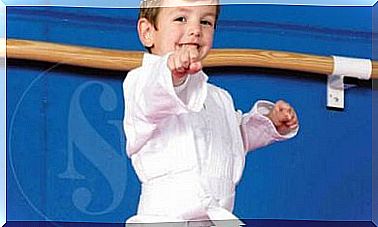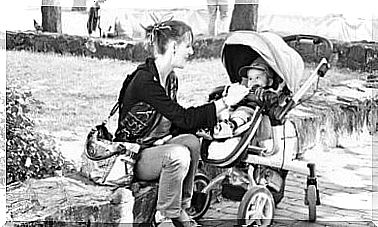How To Help A Child Overcome His Fears? – Being Parents
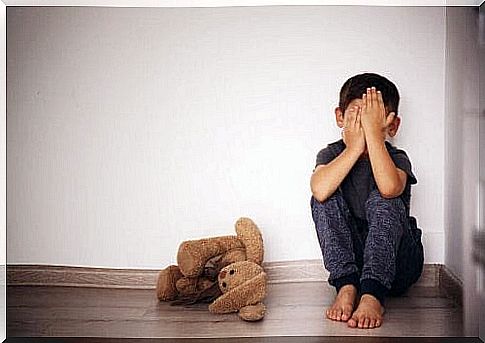
Childhood fears are relatively normal until a certain age. To a greater or lesser extent, a large part of the children go through it. However, it is not the same as a phobia or anxiety disorder. How can we help them overcome children’s fears?
The importance of understanding childhood fear
During the different stages of a child’s development, it is common for him to experience fears specific to his growth and to a specific stage of development. When the child is afraid of the dark, of strangers or of being alone, he may be suffering from what we call “evolutionary fears” .
Fear is a natural reaction of living things. Indeed, it aims to avoid dangerous situations, immediate or potential, which put our survival at risk. In children, fears are common in most cases. They are usually temporary and vary in intensity depending on the stage of development.
Childhood fear according to the child’s age
Childish fear varies depending on the age of the child. During the first two years, fears are caused by loud noises, people they don’t know, and separation from their parents.
When they are in preschool, these fears become more evident as their imaginations begin to develop. Therefore, their fears are more abstract. For example, they are afraid of ghosts, monsters, witches, etc.
At school, between the ages of 7 and 11, fears begin to relate to reality. They are usually related to physical injury, illness or medical visits. For example, the child may be afraid of his parents’ divorce or of not adapting socially.
In pre-adolescence, the aforementioned fears become less and less frequent. At this stage, subjects related to the school environment are of great importance. Think, for example, of the fear of not being accepted by their peers or of not having the approval of adults. Or, failure, in the form of poor grades or poor performance at school.
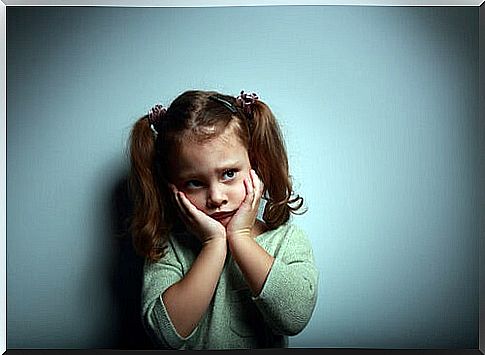
When childish fear turns into a phobia
There is a difference between a childish fear and a phobia. Therefore, parents should be vigilant. If the child has symptoms of phobias, it is necessary to help him quickly.
A phobia is an excessive and irrational fear that the child constantly experiences when faced with a specific situation or object. Unlike fear, which aims to protect us in risky situations, phobia refers to an irrational fear of uncontrollable danger for the child. This fear limits and paralyzes him.
It can be very difficult to distinguish fear from a phobia. Normally, phobias are manifested through the emotion that arises from the anxiety that the child feels when confronted with certain situations or specific objects.
It is necessary to keep in mind that there are three types of phobias, depending on the stimulus that triggers them:
- Generalized: Fear and excessive anxiety occur in different situations.
- Specific: refers to fear in situations related to animals or insects, or nature. For example, weather phenomena, or fear of medical intervention.
- Social: social situations cause anxiety or the child feels great discomfort. For example, when surrounded by a lot of people, must interact with strangers, etc.
How can we help them overcome children’s fears?
The fact of not accompany the child and help him overcome his fears during its development can have consequences in adulthood. This will increase the possibility that he suffers from generalized anxiety in the face of various challenges or situations.
To be sure, it is always best to approach the problem with a professional who will recommend the appropriate treatment to manage the child’s fears.
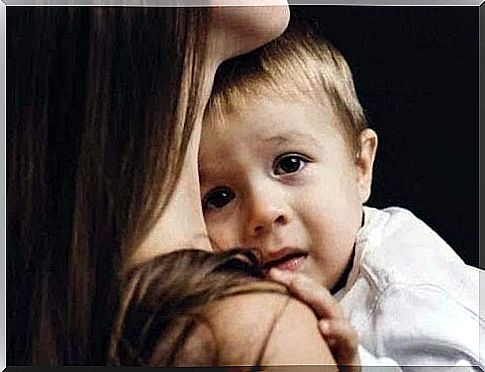
In the home environment, to help the child manage his fears, it is necessary to understand the following guidelines:
- Identify situations or objects that scare him.
- Communicate actively, listen and seek to understand.
- Help the child to feel secure and confident so that he can overcome his fears or situations that frustrate him.
- Teach her methods to control anxiety or give her a tool to cope with a situation. For example, give him a special item that helps him calm down if he’s afraid of the dark.
- Lead by example and give the child a positive outlook on problems. Also, teach him to find possible solutions and naturalize them as something that is part of life.
In short, helping children overcome childhood fears is possible and extremely beneficial. However, their presence should not be of concern to parents, as long as they do not become a major disorder.





